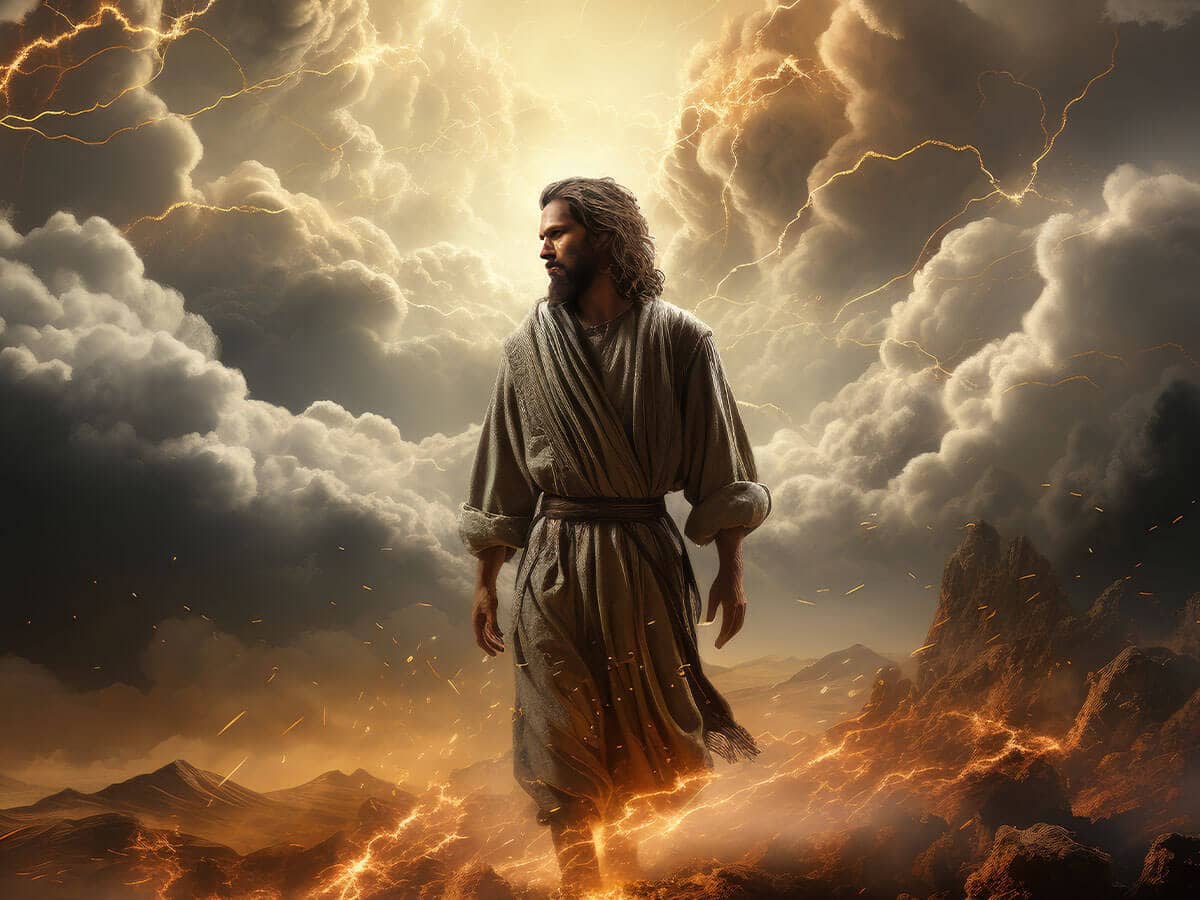Believe in Prophets and Divine Relations
Judaism and Islam each accept the idea that God communicates directly to humanity through the agency of prophets, or human beings chosen by God to serve as “mouthpieces” through whom the divine will may be communicated to human communities. (Contrary to common colloquial use, the term “prophet” refers not to a foreteller of the future, but literally translated simply means “one who speaks for God.”)
For Judaism, Moses is the prophet par excellence, since it was to — and through — Moses that God revealed the Torah (“law,” “instruction,” “teaching”), the extensive body of binding commandments that serve as the basis for the divine covenant established between God and the Israelites at Mount Sinai. The first five books of the Bible, which contain this material, are collectively referred to as the Torah (or alternatively as “the five books of Moses”). The second or middle section of the Hebrew Bible, known as Nevi’im (“the Prophets”) contains accounts of such important subsequent prophets in later Israelite history as Elijah, Elisha, Ezekiel, Isaiah, and many others.
For Islam, Muhammad is the prophet through whom God revealed the Quran (“recitation”), the holy book which Muslims revere as the literal word of God and as the final divine revelation to be bequeathed to humankind; the prophet Muhammad is therefore regarded by Muslims as the last prophet through whom God will speak to humanity. Islam recognizes the reality and validity of previous divine revelations from God to other peoples in other times; the Quran recognizes Adam, Noah, Abraham, Isaac, Jacob, Moses, David, Solomon, Elijah, Elisha, Ezekiel, Jesus, and other biblical figures (along with some additional, non-biblical figures) as true prophets through whom God spoke to his creation, even while it then goes on to add Muhammad as the final figure in that list, after whom prophecy and revelation come to a close.
Of course, for all they may share in common with regard to revelation and prophecy, there remain important differences among the three Abrahamic faiths. While Islam accepts the legitimacy of such previous divine revelations as those which resulted in the Jewish and the Christian scriptures, it maintains that those scriptures have become so distorted over the course of the intervening centuries that the Torah and the gospels, as they have come down to us (and as we have them now), no longer accurately reflect the actual content of those original formative revelations. This means that the Jewish and Christian scriptures as they now exist are no longer accurate or reliable, and insofar as Judaism and Christianity are based upon those scriptures, those religions have become riddled with errors. In the Muslim view, the revelation of the Quran served to correct all of those errors and distortions that had crept into those older scriptures (for example, clearing up the erroneous Christian view of Jesus as being an incarnation of God, or the Son of God, or a resurrected divine savior; Muslims believe Jesus was a great prophet or messenger of God, but certainly not God himself, or in any sense divine).
Of course, Judaism fully agrees with Islam that Jesus was not a divine savior, or God incarnate. On the other hand, Judaism disagrees with Islam’s core belief in Muhammad as being a genuine prophet, or in the Quran as representing an authentic divine revelation. Jews obviously reject the Islamic claim that the infallible Quran “corrects errors” that have crept into the Hebrew Bible. So, there certainly remain important, even non-negotiable theological matters upon which Jews and Muslims must simply “agree to disagree.” Nevertheless, at base, both Judaism and Islam believe in a God (the same God) who reveals himself to his human creations by speaking to them through the agency of human prophets. Chosen by God to serve as his “mouthpieces,” such prophets have, from time to time throughout history, delivered messages from God to entire human communities. For such communities — the Jews, for example, or the Muslims — these divine revelations have given rise to scriptures, which have come to be regarded by their respective communities as uniquely holy and authoritative , insofar as they are held to contain and express the very word and will of God.

